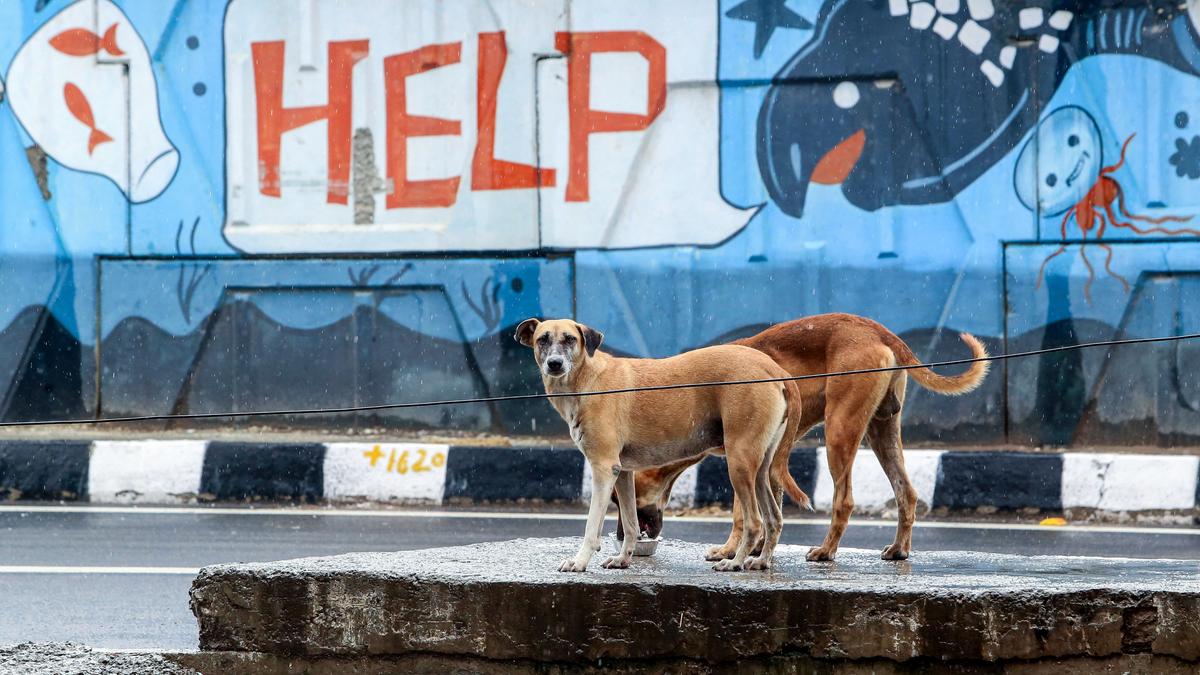This article forms a part of the Data Point newsletter curated by The Hindu’s Data team. To get the newsletter in your inbox, subscribe here
Welcome back, data enthusiasts!
On August 11, the Supreme Court issued a directive asking for all stray dogs in Delhi to immediately be captured and put into shelters. The SC on Thursday reserved its order on pleas challenging its August 11 directive. Using numbers, The Hindu Data Team wanted to examine the validity of the two debated solutions to the issue: shelter or just vaccinate, sterilise and put them back on the streets.
However, as we looked for the number of dog bites in the country, we realised we did not have the latest figure for the number of stray dogs in India.
The most recent data for the number of stray dogs was from the 2019 Livestock Census and even in that dataset we found several anomalies. For instance, the 2019 Livestock Census recorded no stray dogs in the State of Manipur, while the State recorded over 5,500 dog bites in the same year. As we struggled to make sense of this data and put it into a digestible, cohesive narrative, we understood that the lack of reliable data was something worth flagging. Because any policy decision requires recent and reliable data for it to be successful.
Reports state that Delhi’s Animal Birth Control centres, which are not technically shelters, are already in crisis due to overcrowded kennels, understaffing, and lack of necessary equipment. This means that if the SC directive is implemented, it will place further stress on a system that is already reeling.
Our piece also presents a case study of how a data-driven rabies elimination programme implemented in Goa was able to drastically reduce the State’s number of human rabies cases.
Read the story here.
We also produced a video explaining this phenomenon in a simple manner. Click here to watch
While you’re here, have a look at what we’ve published over the past two weeks:
More women than men deleted from electoral rolls in Bihar during SIR: Data
This is one of the various pieces we’ve published which analyse Bihar’s draft electoral rolls prepared after the completion of the special intensive revision (SIR) exercise. Our analysis suggests that the method of self-enumeration could have affected women, among whom there is a lower literacy rate, leading to their higher deletion rates.
Donald Trump’s criticism of India for its oil and arms trade with Russia is factual but illogical: Data
Amidst U.S. President Donald Trump’s calls for additional tariffs on goods from India, we looked at his criticism of India’s recent dependence on Russian oil. We also looked at other countries’ contributions to Russia’s trade revenue, and questioned Trump’s singling out of India.
Share of AC berths doubled in last decade in long-distance Indian trains
In a Lok Sabha question answered on July 23, the Minister of Railways, Ashwini Vaishnaw, had said that the share of non-AC coaches has “significantly increased to about 70%”. The reply did not specify the base year from which this increase was calculated. We took the latest numbers and concluded that the share of non-AC berths/seats has decreased, while the share of AC berths/seats has increased.
Here are this week’s News in Numbers:
People make their way to ‘Marsilli Pahad’ on ‘Sawan Somwar’ amid heavy rainfall, in Ranchi
4 lakh
Data breaches that plagued indian educational institutions in past 9 months
Over two lakh cyberattacks were also found in a nine-month study under the CyberPeace Foundation’s e-Kawach initiative. More than 8,000 unique usernames and 54,000 passwords are targeted in brute-force attacks, and weak credentials like “123456” and “password” are common. Experts warn these breaches can lead to impersonation, phishing, deep fakes, theft of research data, and exam paper leaks.
Source: PTI
20,000
Number of people affected due to a flood-like situation in Jharkhand
In five blocks of Sahibganj district the Ganga’s water level rose to 28.61 metres, exceeding the danger mark of 27.25 metres. Authorities have shut all schools in flood-prone areas till August 12, set up about 50 relief camps, and begun distributing food, drinking water, and essential supplies. The district administration has begun providing dry rations such as flattened rice, jaggery, matchsticks, candles and plastic tarpaulin to the affected people.
Source: PTI
474
Number of arrests made during the UK’s largest protest in support of Palestine Action
While 466 of those arrested during a demonstration in London on Saturday were detained under the UK’s Terrorism Act for showing support for a proscribed group, eight others were held for other offences, including assaulting police officers. Many of those arrested were displaying placards expressing support for Palestine Action. The Met Police, the country’s largest police force, said it marked the most arrests made in a single operation in a decade.
Source: AFP
Published – August 14, 2025 07:15 pm IST
